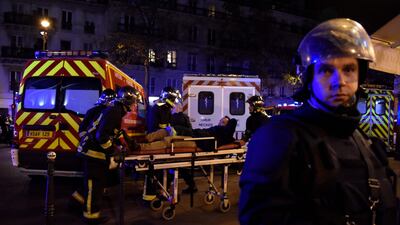The number of people killed in extremist attacks declined for the second successive year in 2016 but more countries were affected, according to the Global Terrorism Index (GTI) released on Wednesday.
Its report, produced by Australia's Institute for Economics & Peace, found there were 25,673 deaths last year as a result of terrorist attacks — down 22 per cent from a 2014 peak.
It noted significant decreases in Syria, Pakistan and Afghanistan.
However, 77 countries experienced at least one lethal attack, more than at any time in the 17-year history of the Global Terrorism Database, on which it is based.
The data set, collated by America's University of Maryland, is considered the most comprehensive of its kind.
The GTI called the falling victim numbers the "main positive finding" and "a turning point in the fight against radical Islamist extremism".
It reported the biggest improvement in Nigeria, where terrorism deaths attributed to Boko Haram fell by 80 per cent last year.
But deaths attributed to ISIL increased by nearly half in 2016, with the majority of the rise — 40 per cent — in Iraq.
The GTI found "disturbing" trends in the worldwide spread of terrorism.
A dozen more countries were the victim of a deadly strike last year than in 2015.
The report's authors also warned of the potential for ISIL fighters from Iraq and Syria to join new radical offshoots in other countries.
In Afghanistan, they described the picture as "complex" in 2016, as the Taliban reduced attacks against civilians but stepped up conflict with government forces.
In Europe and other developed countries, it was the deadliest year for terrorism since 1988, excluding the September 11 attacks in 2001, according to the GTI.
It blamed ISIL activity for the continued spike there, with 75 per cent of terrorist-related deaths in these countries directed or inspired by the organisation since 2014.
"There has been a general shift towards simpler attacks against non-traditional and softer civilian targets," the authors noted.
However, they also found the ISIL's "diminishing capacity" had led to a sharp drop in the number of deaths in the first half of 2017.

